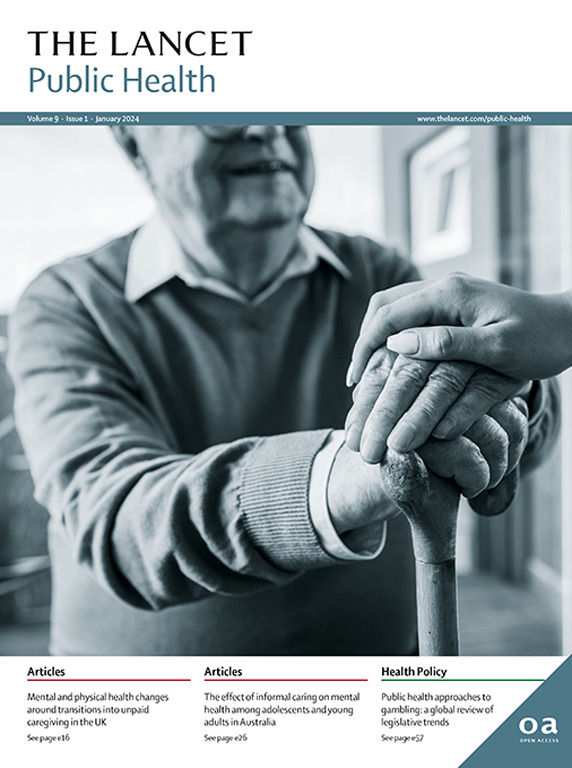筛查不管有风险吗?
IF 25.4
1区 医学
Q1 PUBLIC, ENVIRONMENTAL & OCCUPATIONAL HEALTH
引用次数: 0
摘要
Naomi Tan及其同事在《柳叶刀公共卫生》(2月号)上发表的关于个性化基于风险的癌症筛查的系统综述反映了该领域日益增长的趋势,基于风险的方法似乎是癌症筛查的未来在一个个性化医疗和精准公共卫生的时代,根据个人风险量身定制癌症筛查具有相当大的吸引力。通过识别和筛查可能从筛查中获益最多的癌症高风险人群,希望最大限度地降低癌症特异性死亡率,而不会让风险较低(不太可能从筛查中受益)的人群遭受潜在危害。1,2这种方法代表了一种预防低价值、基于人群的筛查的策略本文章由计算机程序翻译,如有差异,请以英文原文为准。
Screen no matter the risk?
The systematic review by Naomi Tan and colleagues published in The Lancet Public Health (February issue) on the perceptions of personalised risk-based cancer screening reflects a growing trend in the field, with a risk-based approach seemingly being the future of cancer screening.1 In an era of personalised medicine and precision public health, there is considerable appeal in tailoring cancer screening according to individual risk. By identifying and screening people at high risk of cancer who are likely to benefit the most from screening, the hope is to maximise cancer-specific mortality reductions without exposing people who are at low risk—and unlikely to benefit from screening—to potential harms.1, 2 This approach represents one strategy for preventing low-value, population-based screening.3
求助全文
通过发布文献求助,成功后即可免费获取论文全文。
去求助
来源期刊

Lancet Public Health
Medicine-Public Health, Environmental and Occupational Health
CiteScore
55.60
自引率
0.80%
发文量
305
审稿时长
8 weeks
期刊介绍:
The Lancet Public Health is committed to tackling the most pressing issues across all aspects of public health. We have a strong commitment to using science to improve health equity and social justice. In line with the values and vision of The Lancet, we take a broad and inclusive approach to public health and are interested in interdisciplinary research.
We publish a range of content types that can advance public health policies and outcomes. These include Articles, Review, Comment, and Correspondence. Learn more about the types of papers we publish.
 求助内容:
求助内容: 应助结果提醒方式:
应助结果提醒方式:


